 https://steponecharity.co.uk/wp-content/uploads/2025/09/Website-News-Headers-2024-1.png
355
700
Isaac Mann
https://steponecharity.co.uk/wp-content/uploads/2024/02/step-one-wellbeing.svg
Isaac Mann2025-09-12 09:52:112025-09-12 09:52:11Walking for a Cause: The Journey Behind the 300,000 Steps
https://steponecharity.co.uk/wp-content/uploads/2025/09/Website-News-Headers-2024-1.png
355
700
Isaac Mann
https://steponecharity.co.uk/wp-content/uploads/2024/02/step-one-wellbeing.svg
Isaac Mann2025-09-12 09:52:112025-09-12 09:52:11Walking for a Cause: The Journey Behind the 300,000 StepsWritten by Dr. Chandanee Kotecha in collaboration with Rosie Eustace (University of Exeter Intern).
Why understanding your body’s response to stress can change how you show up and feel at work.
Why Our Nervous Systems Matter
When we think about stress at work, we often focus on external things, tight deadlines, a tough manager, endless meetings. But what if we zoomed in a little closer, inside our own bodies?
Because here’s the thing: before we even think about what’s happening around us, our nervous system is already responding.
That slight jolt when your manager calls an unexpected meeting. The racing heart before a presentation. The brain fog that rolls in after a tense conversation. These aren’t character flaws or weaknesses: they’re nervous system responses.
Understanding our nervous systems can be a game-changer, not just for our wellbeing, but for how we relate to ourselves and others at work.
The Nervous System: Designed to Keep Us Safe
From an evolutionary perspective, our nervous system’s main job is survival. Long before there were offices and emails, our bodies developed complex systems to detect danger and help us respond quickly.
Our sensory and autonomic systems are lightning-fast, and our nervous system is like a smoke alarm. Helpful when it’s working properly, overwhelming when it goes off just because you burned your toast. It’s trying to protect you, even when the danger isn’t as serious as it seems.
Our nervous system isn’t checking whether the threat is logical or appropriate. It’s simply asking:
- Am I safe right now?
- Can I let my guard down?
- Or do I need to protect myself?
What That Looks Like at Work
While we’re no longer running from predators, our nervous system still reacts to modern-day stressors, like deadlines or difficult conversations, as if they could be threats and our bodies respond automatically, even if the danger isn’t life-threatening.
Let’s look at a few examples:
- You open your inbox on a Monday morning to dozens of unread emails → your heart rate picks up, jaw clenches, and you feel a strong urge to avoid or shut down completely.
- You receive vague or critical feedback with no clear next steps → your mind races to make sense of it, your stomach drops, and you replay the conversation over and over.
- You’re asked to present at short notice in front of senior leadership → your hands sweat, heart pounds, and your brain struggles to find the right words, even if you know your stuff.
- You’re juggling multiple high-priority tasks with tight deadlines → your brain struggles to process what to do first, you feel mentally foggy or frozen, and even simple decisions feel overwhelming.
These are nervous system responses. They’re not about overreacting or being too sensitive. They’re about your body trying to interpret whether you’re safe.
The problem is, when our workplace culture constantly triggers our threat system, we can find ourselves stuck in high-alert or shut-down states which can be referred to as hyperarousal (anxious, agitated, overactive) or hypoarousal (disconnected, withdrawn, numb).
Neither state is wrong. They’re survival strategies. But staying stuck in them over time can take a toll on our health, relationships, and ability to work effectively.
Working with your Nervous System
The more we understand our nervous system, the more choice we start to have. We can start to notice our own cues and respond with compassion rather than criticism.
Take 10 seconds. Drop your shoulders. Unclench your jaw. Take a slow breath.
How does that make you feel?
We can learn to ask:
- What is my body trying to tell me right now?
- What do I need to feel safe enough to re-engage?
- What helps me return to a state of calm and connection?
This isn’t about controlling your nervous system. It’s about collaborating with it. About building awareness, noticing patterns, and gently nudging your body back toward regulation, especially in environments that don’t always feel safe or predictable.
Understanding = Better Workplaces
When teams and leaders understand how the nervous system works, we become more compassionate and connected.
This awareness also opens the door to meaningful conversations around psychological safety, sensory needs, and regulation strategies, which are essential for thriving at work.
Once we understand what’s happening in our bodies, we can start to work with it, not against it. Simple actions like taking a few deep breaths before a meeting, adjusting your environment to reduce sensory overload, or building in short pauses between tasks can help bring the nervous system back into a more balanced state.
When individuals have tools to regulate, and workplaces create space for that regulation to happen, we see more clarity, creativity, and connection.
Bringing this understanding to your team
Exploring how our nervous system works can help teams move from simply coping to genuinely thriving.
Our Recharge, Thrive, Connect workshop is a practical session designed to help employees:
- Enhance understanding of mental wellbeing and how to nurture it
- Build greater awareness of the mind-body connection and our nervous system
- Explore the sensory world we live and work in
- Experience real-time, practical strategies to manage stress and stay present
- Develop a personalised toolkit to take forward
Whether you’re a small team or a large organisation, this session is a powerful way to shift culture from reactive to proactive, helping people feel safer, more connected, and more engaged in their work.
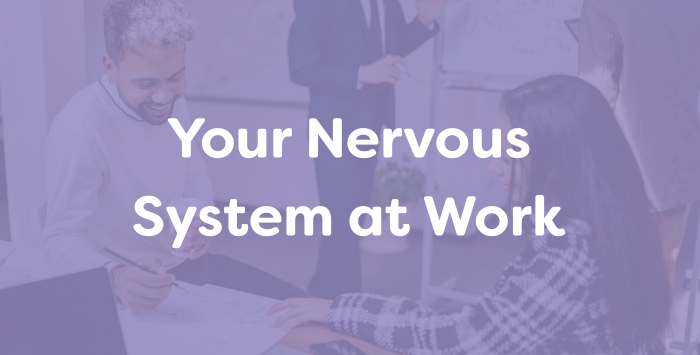
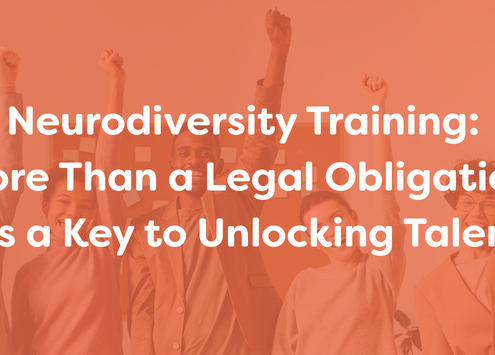
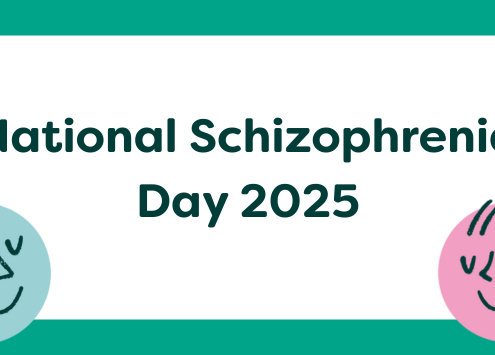
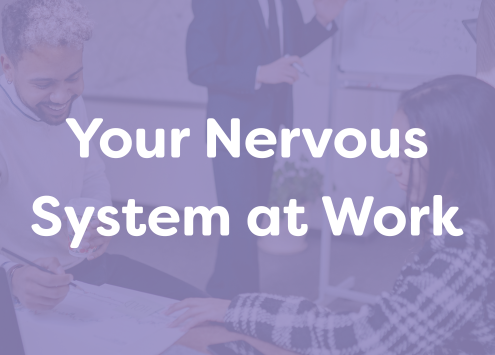
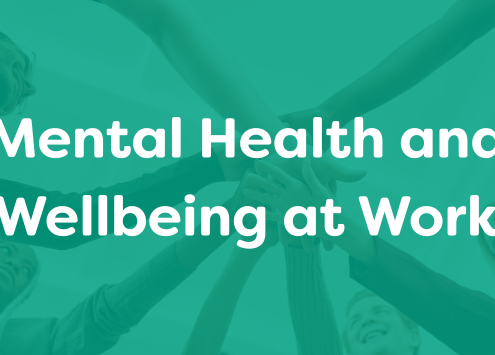
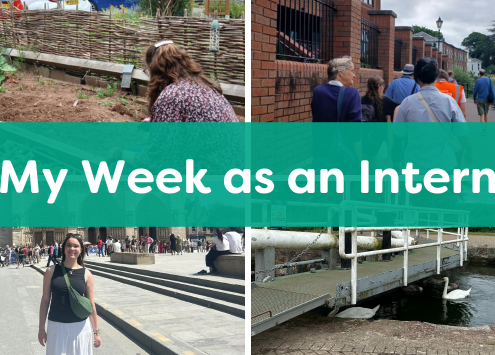
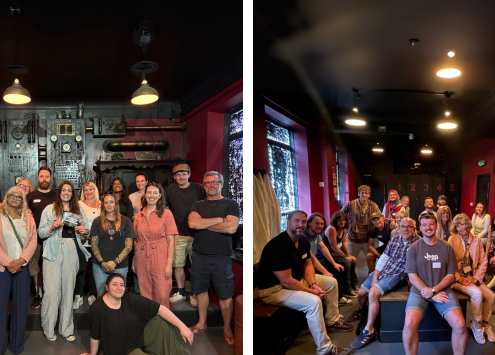
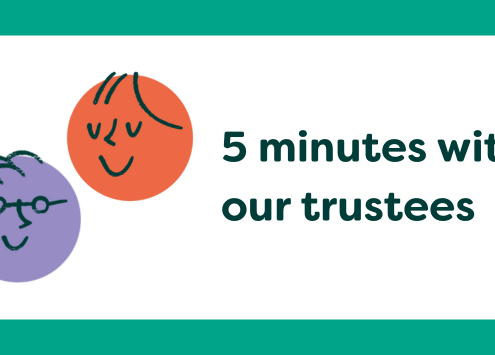
![Graphic with quote reading: “You met me at one of the most difficult times and seeing the difference you’ve made is amazing [...] Please keep doing what you do. You change lives.”](https://steponecharity.co.uk/wp-content/uploads/2025/04/Website-News-Headers-2024-33-495x355.png)
